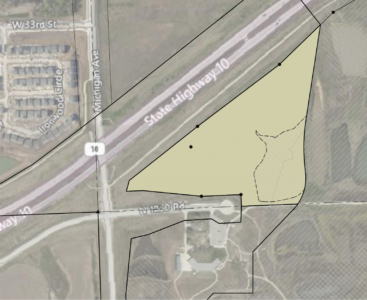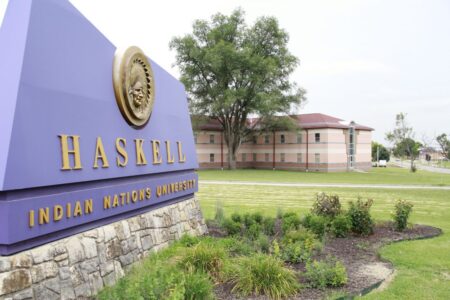A look at Lawrence’s newest sister city partnership with Tocopilla, Chile

photo by: Municipality of Tocopilla
This drone shot shows an aerial view of the City of Tocopilla and the mountains and ocean that surround it.
Tocopilla, Chile, might be located thousands of miles from Lawrence, but the two cities aren’t exactly worlds apart.
Lawrence is no stranger to finding commonalities with communities located all across the globe, as it already counts three international communities as sister cities — Eutin, Germany; Hiratsuka, Japan; and Iniades, Greece.
There’s now a fourth member on that list, after the Lawrence City Commission approved a proposal from Sister Cities Lawrence to formally partner with Tocopilla as a new sister city earlier this month.
The Journal-World recently learned more about the city of about 25,000 along the coast of northern Chile and the reasons why it sought to partner with Lawrence.
• • •
The most prominent reason on the list is Chile’s participation as a founding partner of the U.S. Department of Energy’s Net-Zero World Initiative, which began in 2021 as a partnership between countries working to transition to net zero energy systems.
Riccardo Bracho, who works with the U.S. Department of Energy’s National Renewable Energy Laboratory, is the initiative’s country coordinator for Chile. Bracho told the Journal-World Thursday that Tocopilla is a city with many connections to the U.S., namely related to mining and power generation.
Power plants were developed in the country’s coastal cities many years ago to provide electricity for mining operations taking place miles away, Bracho said. That includes Tocopilla, which is home to a coal-fired power plant built, owned and operated by AES, an energy company based in the U.S. Bracho said Chile is aiming to close all of the coal plants operating throughout the country by 2040, and the one in Tocopilla is scheduled for closure by 2025.

photo by: Municipality of Tocopilla
An evening view of a street in Tocopilla, Chile.
“… They’re very interested in understanding what lessons learned, what capabilities, what other communities in the world — and particularly in the U.S. — are doing,” Bracho said. “In general, not just closing power plants but in general, for (energy) transitioning.”
And therein lies the key factor in this sister city partnership. Lawrence is also home to a coal-fired power plant — Evergy’s Lawrence Energy Center — whose coal unit is supposed to be retired in the next four years.
But it’s not the only factor, Bracho noted. Tocopilla also has an interest in higher education. The closest major university is to the south in the region’s capital, Antofagasta, which is 2 1/2 hours away by car. A regional center for technical education is located about the same distance to the east in the city of Calama. But Tocopilla is now building its own center for technical education, Bracho said, and learning about things like curriculum development from a place like Lawrence, where the University of Kansas is so prominent, is also a benefit of the partnership.
The budding relationship even extends to sports. While Bracho said Chile is — like many Latin American countries — a soccer country, Tocopilla is actually more interested in baseball.
“It’s baseball because of that relationship with U.S. companies that brought baseball into the city,” Bracho said. “They’re very, very proud. They’ve had a lot of great stars and some have played in the U.S. in the major leagues.”

photo by: Municipality of Tocopilla
Tocopilla has its own baseball stadium; the Chilean city has especially embraced the sport because of its ties to U.S. companies.
• • •
Tocopilla is the first city not just in Chile but among all Net-Zero World Initiative members to establish a sister city relationship, and the only partner in the initiative with a specific focus on “Just Transitions” — meeting climate goals to ensure the whole of society, from communities to workers, is brought along in the transition to a net-zero future.
That’s why Bracho said countries like Ukraine, Indonesia and others are exploring similar “Just Transition” energy goals to incorporate into their own work plans, and will be following the Tocopilla-Lawrence partnership with great interest.
“There’s going to be a lot of eyes from many countries looking at this relationship,” Bracho said.
It’s also a reason for one key difference in this relationship compared to Lawrence’s other sister cities. The new partnership’s origins weren’t rooted in the idea of a cultural and educational exchange but more so in finding a partner community with similar environmental goals.

photo by: Municipality of Tocopilla
This drone shot shows an overhead view of the El Salitre swimming area in Tocopilla.
Lawrence was actually one of four or five finalists — “friendship cities,” as Bracho called them — that met the criteria for what Tocopilla was looking for in an ideal partner. Factors like the developing $4 billion Panasonic battery plant coming to nearby De Soto and Peaslee Tech’s course catalog including offerings like solar panel installation training pushed Lawrence over the finish line.
“At the end of the day, we asked the people in Tocopilla ‘Do you have a preference, based on what you’re seeing?'” Bracho said. “And they felt that the community that was more prepared and could help them right away with most of the things that they are looking for — and also a community that they feel, even though they are very small, that they can also contribute with their own lessons learned from all of it — was Lawrence.”
That exchange works both ways. Lawrence is in the midst of a planning process that could lead to the first industrial-scale solar energy project in Douglas County, Evergy and Kansas City energy firm Savion’s Kansas Sky Energy Center proposed for just north of Lawrence. Tocopilla is already intimately familiar with large-scale renewable energy facilities because one of the larger concentrated solar power plants in the world, Cerro Dominador, is located just a couple of hours away.
• • •
If all goes to plan, delegations from both Lawrence and Tocopilla may be paying visits both ways before the end of 2024. Bracho said hopefully, a delegation from Tocopilla — including Mayor Ljubica Kurtovic — will visit Lawrence in the summer, and the Lawrence delegation could travel to Chile in the fall. That timeline is still tentative, though.
And despite the overall differences in this relationship compared to Lawrence’s other sister cities, the Net-Zero World Initiative still has an interest in students getting involved. Bracho said it’s likely that high school students will come along to Lawrence from Tocopilla.

photo by: Municipality of Tocopilla
Tocopilla, being an oceanside city on the coast of Chile, is also a port community.
Bracho said it’ll be especially important to use 2024 to develop a work plan for the partnership, while engaging both communities and fostering that in-person relationship. For at least the first two years of the partnership, the plan is to focus predominantly on environmental transitions — but without ignoring things like the arts, sports and education that help to create a sustainable relationship.
If it all goes according to plan, it should start conversations about the issues both communities are passionate about and allow them to consult each other on their goals and progress.
One example Bracho shared was a developing pilot project in Tocopilla to recycle and repurpose solar panels that have reached the end of their usable lives, which could have the potential for a productive partnership between Tocopilla and KU or Peaslee Tech.
“This would be like a real opportunity for hands-on assistance on developing something that is not even here in the U.S.,” Bracho said. “This doesn’t happen in the U.S. because panels are pretty expensive, so they are just discarded, unfortunately. But in many communities in the world, they could mean a new business model and create jobs for these communities in transition. That’s just an example of ideas that we have.”







COMMENTS